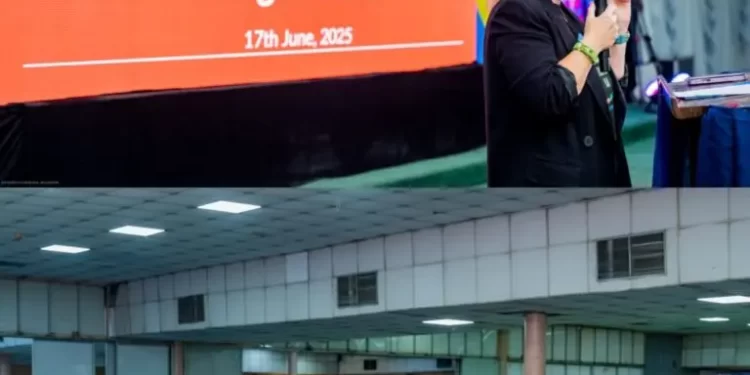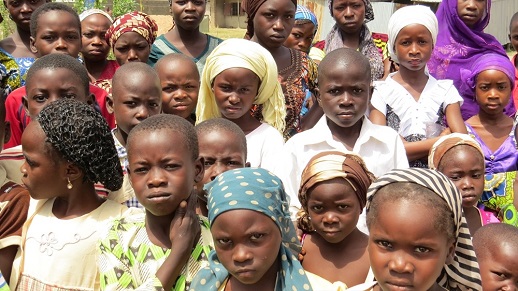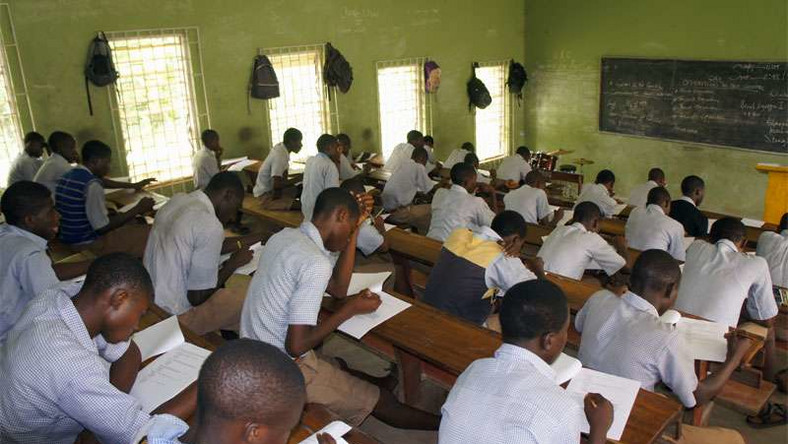UNICEF seeks urgent collaboration to address climate change
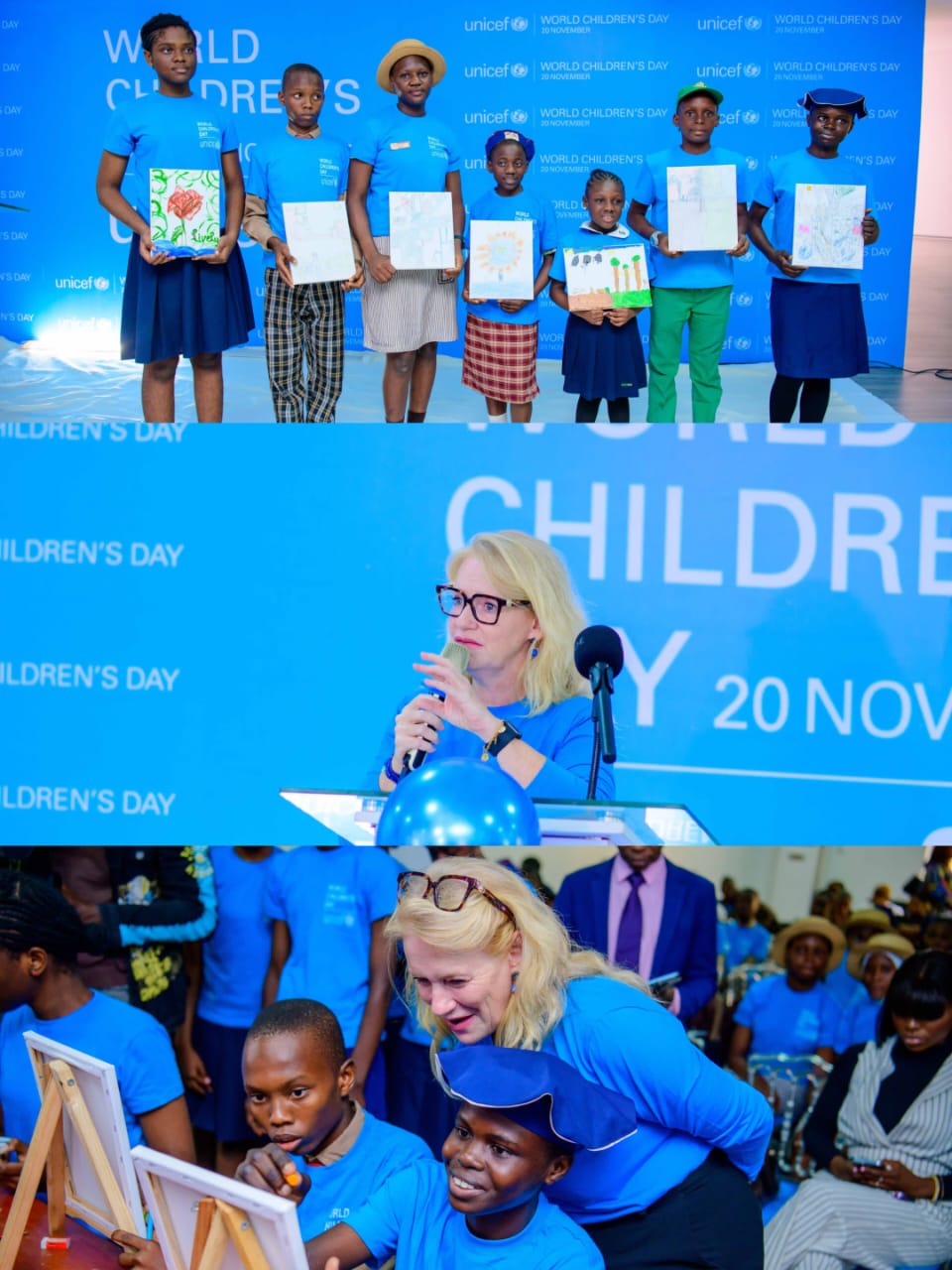
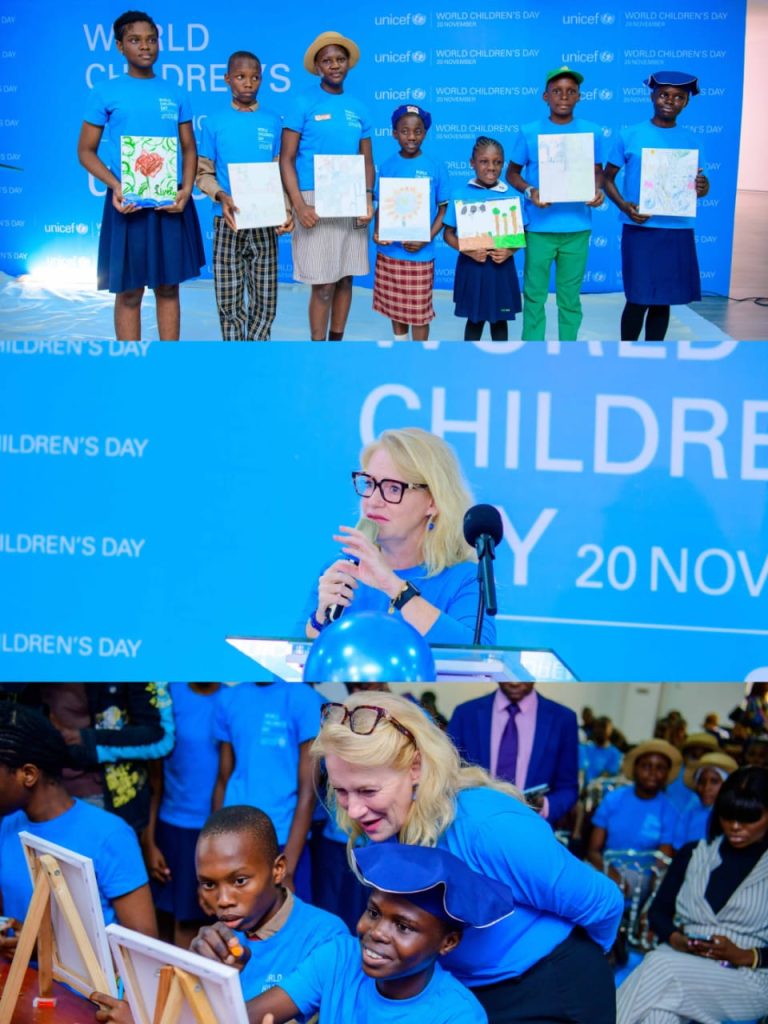
LAGOS (Sundiata Scholar) – The United Nations Children’s Fund (UNICEF) has called for urgent collaborative efforts to address climate change for the well-being of Nigerian children.
According to UNICEF, climate change puts the children’s future at risk.
Celine Lafoucriere, Chief of UNICEF Field Office for South West Nigeria, made the remark at an event held in commemoration of the 2024 World Children’s Day (WCD), on Wednesday in Lagos.
The theme of the event is ‘The Voices Today – empowering children and young people to lead climate change”.
Lafoucriere said it had become necessary to empower the children and youth, whose creativity, ideas and leadership would shape the sustainable and prosperous future we all envision.
“These young champions you can see today around you in the room are slowly but surely becoming generational agents of change, making sure that things change as they are the future parents of the children of Nigeria.
“UNICEF will simply never cease to collaborate with relevant partners, public and private sector partners, as well as champions, young people and children, to create a safer planet for children.
“One of the fractional initiatives that we lead in UNICEF Nigeria is the work we do on the generational limits in Nigeria, whereby we work with and for youth to ensure that they can give priority to climate action.
“By doing so, youth are also working with and for children, ensuring that they can gain the understanding and the awareness of the importance of climate action.
“So, I encourage everyone to celebrate and empower our children, our youth, whose creativity, ideas and leadership will shape the sustainable and prosperous future we all envision,” she added.
She noted that upholding child’s rights was essential for creating a better world for the present generation and the next to come.
Lafoucriere, who described the event as the biggest and most important day of the year for UNICEF, reiterated that achieving the mandate of child’s right is the organisation’s acronym.
“Children, you are very much our present and our future, your human rights are non-negotiable, your well-being, your health, your good nutrition, your access to water and sanitation, hygiene, and your access to education is our mandate.
“You are the drivers of the safeguard of peace and violence, I celebrate the role you play in this and any other country, lending your voices and preparing solutions to critical social issues, because it’s about you and your creativity.
“As it aligns with our number one mission to advocate for the rights of children to survive and to thrive in good health with access to good nutrition, water, sanitation, legal protection and education,” she said.
According to her, the Children’s Climate Risk Index says Nigeria is among the top three countries in the world impacted by climate change, with over 100 million children increasingly exposed to extreme weather patterns.
“This causes heavy rainfalls, flooding, storm surges and elevated temperatures, contributing to frequent disasters that impede their rights to good health, nutrition, access to water, and education, with schools shutting down.
“Hence the urgency of the collaborative efforts to address climate change for the well-being of Nigerian children, such as what we are doing here today.
“UNICEF will simply never cease to collaborate with relevant partners, public and private sector partners, as well as champions, young people and children, to create a safer planet for children.
“One of the fractional initiatives that we lead in UNICEF Nigeria is the work we do on the generational limits in Nigeria, whereby we work with and for youth to ensure that they can give priority to climate action.
“By doing so, youth are also working with and for children, ensuring that they can gain the understanding and the awareness of the importance of climate action,” she added.
Also, Mr Mobolaji Ogunlende, Commissioner for Ministry of Youths and Social Development in Lagos State, in a goodwill message, said the global celebration symbolises the unity and commitment of all leaders to protecting children’s rights around the world.
Ogunlende, who expressed appreciation to UNICEF and the Lagos League Office, said that Nigerian children deserve the best value for survival, development, protection and participation in matters that affect them.
“We are committed to upholding the provisions of the Child Rights Law of Lagos State for the benefit of children and we thank UNICEF for their continuous support to the state.
“Particularly in the area of capacity building of social welfare officers, stakeholders and the various activities aimed to end violence against children and competitors that affect the survival and development of children.
“World leaders, including the governments of Nigeria and in particular the Lagos state government are working assiduously to mitigate the effects of climate change in our environment.
“The interest of children is paramount to us, especially in alliance with the provisions of their right to participation. It is important for children to be part of the decisions and solutions to climate change especially as it has significant impacts on their survival and well-being,” he said.
The commissioner was represented by Adenike Obilana, Deputy Director, Social Welfare, Child Development Department, Ministry of Youths and Social Development.
On her part, Kate Henshaw, UNICEF Nigeria champion, charged the children to implement eco-friendly practices in their homes, schools and communities.
“Keep exploring, keep being curious, keep learning, act brave, keep smiling and keep dreaming big, you can achieve your dreams,” Henshaw said.
reports that the event featured a video documentary titled ‘Youth Climate Actions across Lagos’, while children from private and public schools across the state engaged in creative climate action activity: ‘pencils for planet’.
Also, interactive panel session, ‘ Climate Action Starts With Us’ and story telling segment – ‘A day in the life of tomorrow’s planet’, facilitated by Tomike Adeoye, an actor and TV presenter, who spoke on ‘the power of story telling for social impact’. (NAN)



